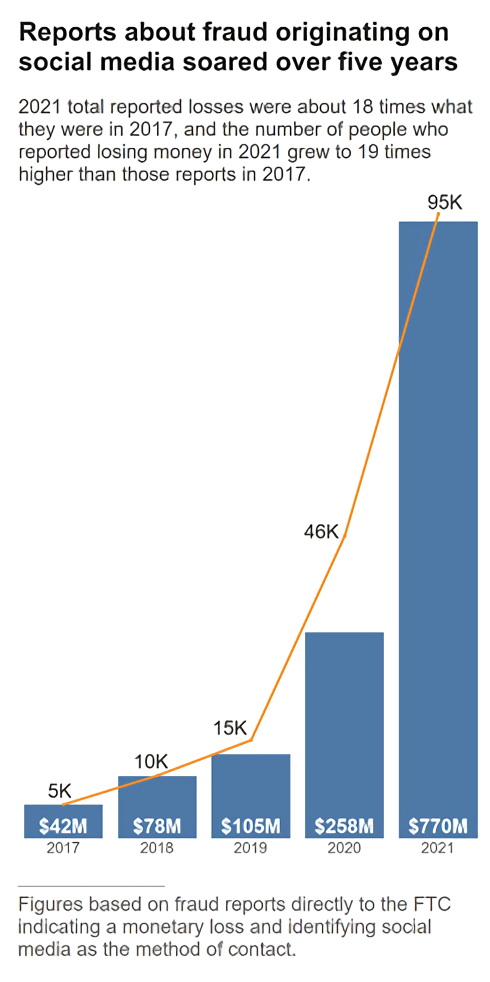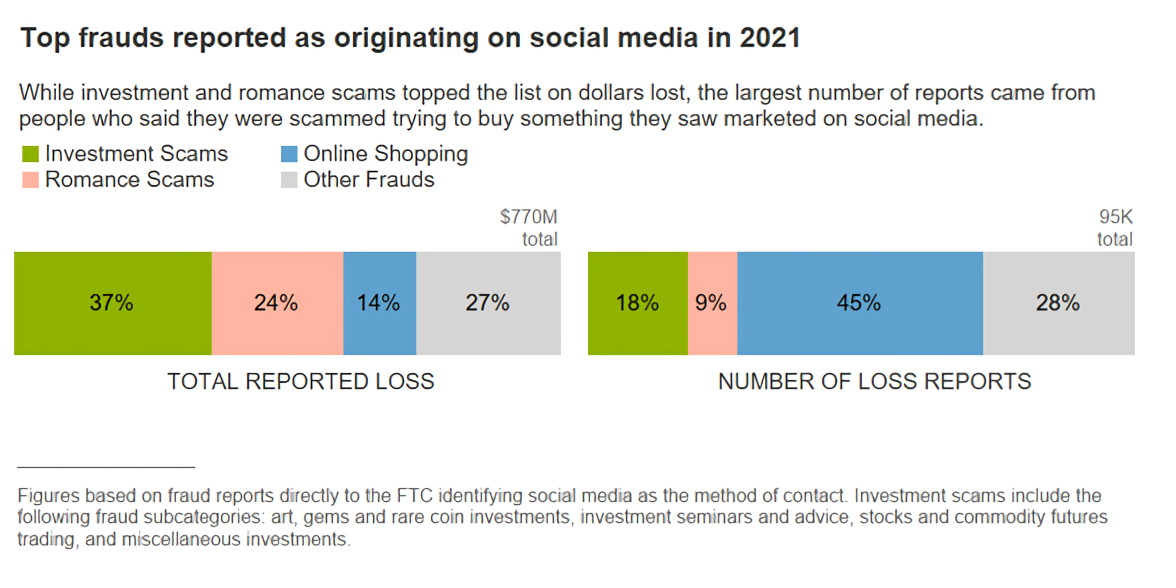TL;DR: Just because there are more tech-savvy people around, it doesn’t mean the number of social media fraud victims is declining. According to new data from the Federal Trade Commission (FTC), the number of users who reported being swindled through sites like Facebook and Twitter reached a record 95,000 last year, with total losses reaching a massive $770 million.

The FTC writes that 25% of all reported losses to fraud in 2021 were those that originated from social media platforms. The most recent figures mark an eighteenfold increase over 2017 reported losses, but they are likely to be much higher as many people are too embarrassed or ashamed to report being scammed.
Scammers love social media platforms. The sites offer a multitude of ways to con money out of people and are a cheap method of reaching billions of potential victims. Many criminals utilize the personal information publicly available on the platforms, and they can target people via scam ads that are pushed to those with specific interests or who fall into certain demographics.
Of that $770 million stolen by scammers, the majority (37%) was lost to investment scams. Fake cryptocurrency schemes remain a popular way to steal people’s money, and plenty have fallen for NFT sales that turned out to be cons.
Romance scams were responsible for the second-highest (24%) number of reported losses. These sorts of frauds have been around for decades but have seen their popularity skyrocket since the proliferation of social media. It’s also the scam that most people feel too ashamed or embarrassed to report.
While investment and romance scams were most profitable, the largest number of scam-related reports (45%) in 2021 were for online shopping fraud. These usually involve ads for fake websites that social media users click on before ordering an item that never arrives.
The FTC recommends some ways to limit your chances of being scammed on social media: restrict your privacy settings, opt-out of targeted advertising (if possible), beware of suspicious messages from friends who may have been hacked, check out company reviews before buying something, and don’t dive into romances with a stranger or send them money.
https://www.techspot.com/news/93169-social-media-scammers-stole-770-million-victims-last.html

